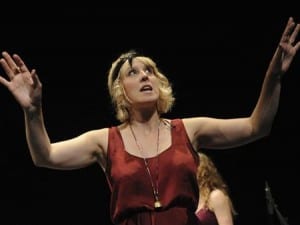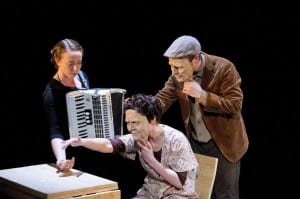How will I manage this production?
The most important factor of producing a technical demanding production is organisation. ” The production manager is responsible for the entire organization of a theatrical production” ((Crabtree, Susan and Peter Beudert (2005) Scenic Art for the Theatre. Oxford: Focal Press.)). A PM’s main role is to organise ALL elements of the theatrical production from set to lighting, sound to props and bring all these elements together into one, cohesive performance, all the while maintaining the director’s concept for the show. In order to achieve all of these aims in an efficient and effective manner, a PM must be well organised.
Therefore, my main method in producing this performance is careful planning and organisation and, as a consequence, ensuring that all designers/stage management team have clear instructions and deadlines to meet throughout the production process.
After our initial production meeting, my aim is to begin set construction as soon as possible (ideally during the Easter break) and work to as close a budget as possible. Theatrical productions such as ours, which employ numerous technical elements, can often incur unexpected costs close to performance day. Therefore, I feel it is important to ensure that some money is left in the budget for any unforeseen costs on performance day.
I also aim to maintain constant contact with the director, throughout the rehearsal process, in order for no technical requirements to be missed. In order to do this, I will ensure that at least one member of the technical team (not including those who are also actors) are present at every single rehearsal. Ideally, the Stage Manager will attend as many of these rehearsals as possible because she will be on book during our live performance and it is important that she knows the performance inside out. Any member of the production team who attends these rehearsals has been asked to compile a ‘Production Rehearsal Note’ (see *Appendices) detailing any technical requirements/changes which have been made during that rehearsal.
This is the Stage Management Rehearsal Schedule detailing who will attend each rehearsal:
Stage Management Rehearsal Schedule
Kate Dawson
Word Count: 346
Works Cited


